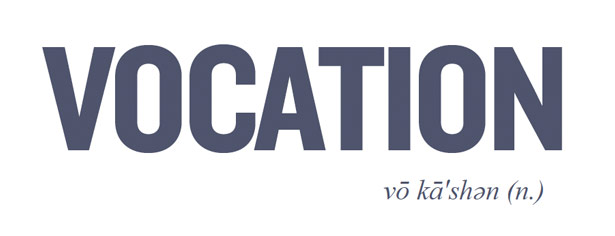Word Play What's in a Word
We don't know about you, but we love to learn about words — their meanings, their origins, how to use them in conversation. In each
issue of Response, we ask a campus expert to explore a word related to the magazine's theme. This time, our faculty members delve into the Latin roots of “vocation.”

By Kenman Wong, Professor of Business Ethics and Owen Ewald, C. May Marston Assistant Professor of Classical Languages and Civilizations
“Vocation” comes from the Latin word vocare, “to call.” Vocation implies a summons or an invitation: a child's mother can call her to supper; a general can call his soldiers to battle; or, in pagan religion, a god can call a human to hear an oracle or prophecy.
In the Latin translation of the Bible, vocare can suggest a divine call, as when God calls to Samuel in 1 Samuel 3:4–10 or in Mark 1:20 when Jesus calls James and John to follow him. In the middle ages, the Latin word vocatio was often a call to the religious life of a monk or a nun.
In today's lexicon, the words “vocation” and “calling” have been stripped of their spiritual connection: people will often describe work for which they have great passion as a “calling.”
Researchers, such as Amy Wrzesniewski of Yale University, have discovered that when employees view their work as a calling with a social purpose, rather than a “job” with strictly financial goals or
even a “career” aimed at upward mobility, they tend to have higher satisfaction, work longer hours, and may even be among an organization's top performers.
While these outcomes are generally positive, there may be a dark side: overwork and over-identification with work. Philosopher Lee Hardy, in The Fabric of the World, and theologian Cornelius Plantinga, in Engaging God's World, have suggested that our paid work is only one part of a larger vocation or calling: to become good citizens of the kingdom of God. Or work can be seen as one of many callings, in addition to serving family, neighbors, and church. The implication is that our work should be bounded by the Sabbath — an aim that often proves elusive in a culture of 24/7 connectivity. A Sabbath orientation reminds us that we are more than laborers, no matter how much we may love (or hate) our paid employment.
